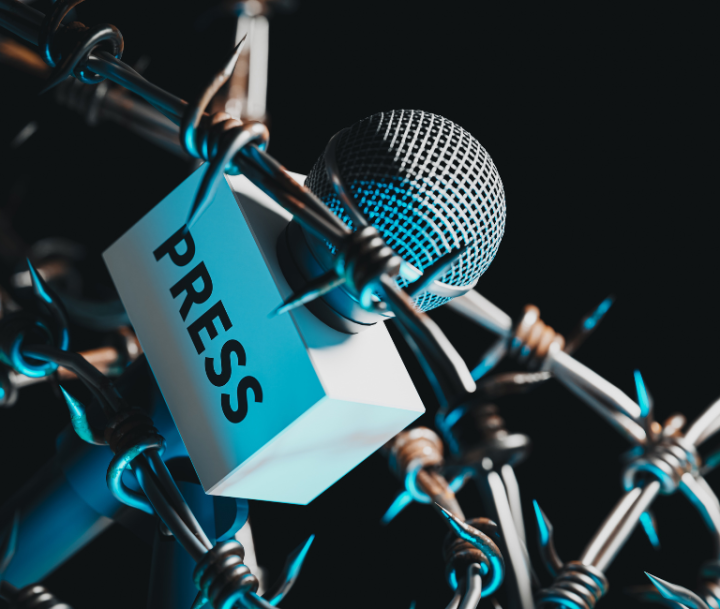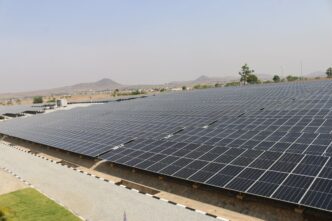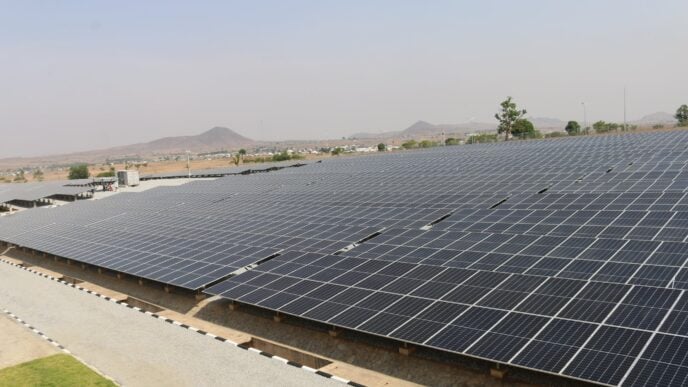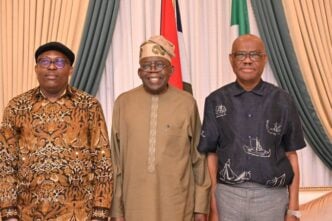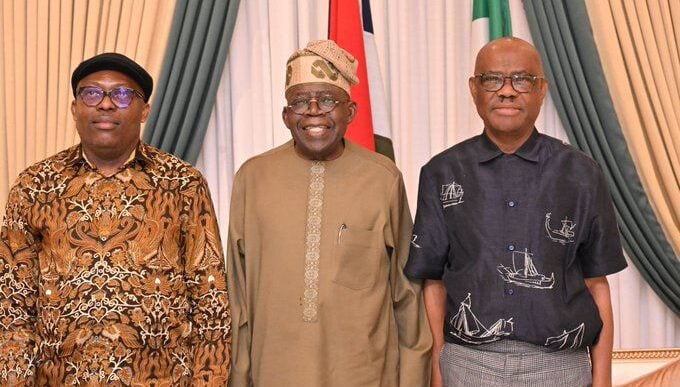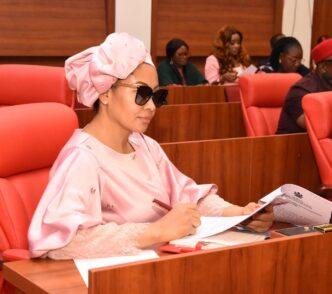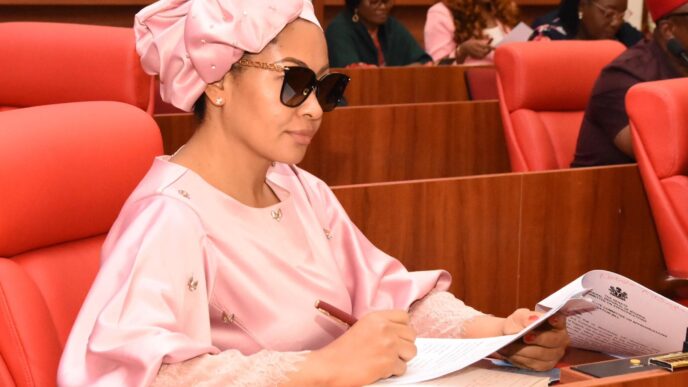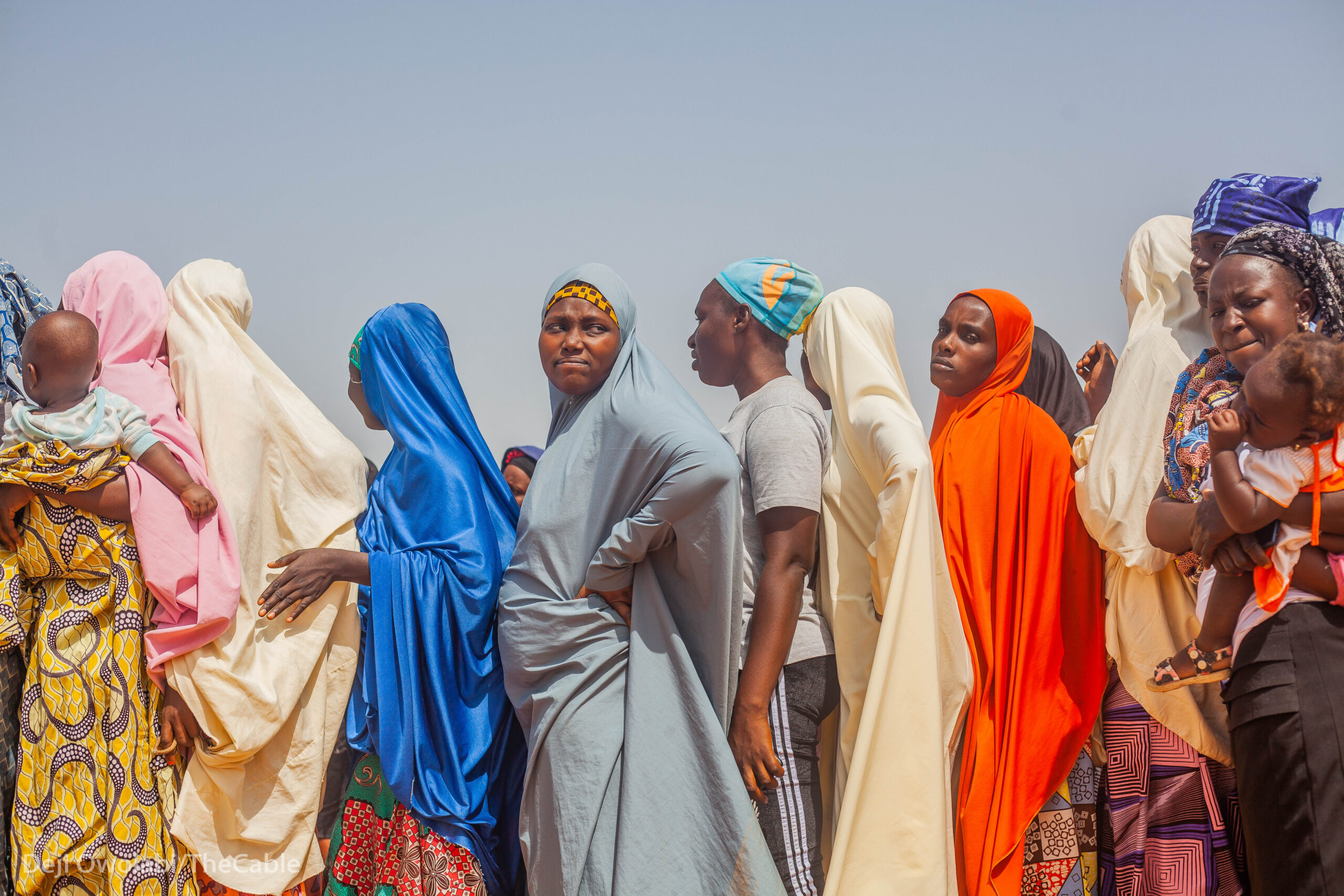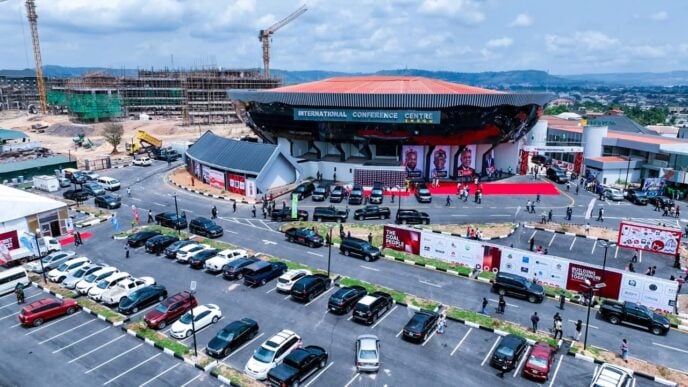BY KUNLE SOMORIN
It is not so long ago when Nigerian journalism used to come dressed in civilian clothes: free, curious, and full of dogmatically insurgent integrity. Today, we are appalled by such a shift in clothes. Let nobody say it is a fallout of social media or the dynamics of the media landscape. As an academic of media ethics, I am alarmed by the fact that the press has been becoming increasingly regimented into the uniform of compliance, and they merge with the pageantry of power and shed the need to be questioned. In Abuja, the minister of the Federal Capital Territory, the irrepressible “performing minister” Nyesom Wike uses front pages as a thank-you letter to ceremonial milestones and the newsmen who would earlier have demanded receipts are now clapping, not questioning. And thus the watchdog is clad with a collar, and his bark is constrained by its being close to patronage.
This piece is no excoriation. It is a plea for introspection. It is a call-out, not a call-in, not a call-down, but a call-in-a-call-on-call-to-call-up-journalism to its dignity. When the media turns into a vehicle of self-praise at the expense of the populace, and when small leadership is narrowed down to ceremonies of tearing the opening ribbons, then it is no longer deliberative democracy; that is, it is ornamental.
The recent event in Abuja gives a bright example. For 17 consecutive days – God knows how many hours – the FCT minister, Nyessom Wike, earned the reputation of splurging hundreds of millions, maybe even billions of naira, on front-page advertisements, most of them with his own photograph, praising what is known here as infrastructural interventions or dividends of democracy. These are neither policy briefings nor citizen advisories. They are festal spreads that have banners and bombast about them, and command ho-hum public service to appear as messianic deliverance.
Advertisement
Mainstream media fuels such coverage instead of questioning the same. Editors as well as columnists all appear hapless to trot out the official line instead of examining the economic and ethical consequences of this messaging blitz, especially at a time when national purses are already stretched. However, the question must be asked: at what price and expense?
The ideal form of governance should be seen in how it competently does its job and heard in how it answers. But in contemporary Nigeria, a new tarmac culvert, a painted classroom and a rehabilitated drainage channel all generate a fanfare. The political rhythm has been replaced by pomp and not policy. When pageantry defines policy and the political rhythm attracts endorsement by the media, the victims are the people, the oblivious underwriter of a ritual waste.
This kind of theatre is not new, and definitely not a creation of Wike. Don’t get it wrong. Ribbon-cutting has since evolved as an endemic practice from Lagos to Sokoto, from Ebonyi to Taraba, Uyo and Kano – just everywhere. The cost of commissioning often outweighs the cost of construction. Unveilings are planned in style by the governors and ministers. Nobilities are summoned, announcers called, and choir groups are ready. Starting a project is done on a large scale, even in cases where its sustainability is not certain. In some cases, even the infrastructure itself is hardly finished; still, the clap is well practised.
Advertisement
This performance has been preceded by the deep reengineering of the civic psychology. The visibility is seen as a value because the electorate, beaten by empty promises, anaesthetised by financial insecurity, are accustomed to that. Roads will still be welcomed even when they give way in the shortest rains. It is celebrated that health clinics are being established with very few employees and few supplies. Press releases are used to call forth applause; sponsored pieces of opinion to suppress objection.
What about the press? It not only documents this drift, but it also simply choreographs, endorses and profits from the anomaly in most cases. The Nigerian Guild of Editors has gone to indicate that about 60 percent of media houses depend on government advertisements and patronages to continue operations. This way, it needs no gainsaying that editorial independence is compromised by this economic dependence. As soon as a newspaper or publication stops making money on the reading audience or journalism, but on the expenses of state propaganda, the difference with the propaganda effort becomes increasingly thin.
This is proved empirically. In a 2021 report issued by the Centre for Journalism Innovation and Development (CJID), approximately three out of four journalists interviewed confessed to self-censorship during the publication of government activities, notably in cases where their media houses maintained financial stakes with political parties or those in power. The end note of the report was quite grim: The new censorship is economic capture.
In this seized landscape, the art of investigative reporting is emasculated, and a sense of morality, a side note. The work of fact-checking is burdened by time pressure and instructions. Editorials that used to present principled criticism previously promised respectful euphemisms. The watchdog, which used to be vigilant, stalks aimlessly, bound by economic need.
Advertisement
Nonetheless the role of the press is good as defined in section 22 of Constitution of 1999 of the Federal Republic of Nigeria asserts that the press, radio, television and other agencies of the mass media are at all times free to uphold the fundamental objectives contained in this Chapter and uphold the responsibility and accountability of the Government of the people. This is not a piece of rhetoric. It is an obligation – one that can neither be negotiated nor eliminated. It is an obligation, unalterable, lifelong, sacred.
It is imperative not to give up that responsibility whatsoever, not even under compulsion, that is to undermine our democracy. This is not only a professional degeneration, but a philosophical one. It shows a deterioration in what we ourselves think about governance as such. Service to society is not charity. It is a duty – it is a law of the state, it is a moral obligation. The roads, hospitals, schools, powerlines, these are not out of the goodness of their heart but what they are entitled to as citizens. They want their supply not on ticker tape but on their durability; not on drum beat but on supply.
Form should never be given precedence over substance, in “performing” ceremonies at the cost of serious service delivery. What happens when a smart permanent secretary is featured more in the news over a ribbon than a regulatory change, when a good governor is known less because he chooses to overhaul service procedures, than because he agrees to construct an anachronistic edifice, is that the values of public administration have reversed?
And this is not a phenomenon on the federal level only. The degree to which the same theatrical urge exists at the level of local government is also high. Banners are planted on market stalls. Committee inaugurations are commemorated in pomp in empty council chambers. Grassroots now serves as area to seek grandstanding, and the “hoping people” keep “renewing hope”, becoming very low so that their expectations will be as shallow as the delivery.
Advertisement
In that regard, the press can make a decision whether to continue with amplification or switch to interrogation. The latter is not a cake walk. Economic pressure is indomitable. Retribution really exists in the political field. The soul of journalism is not comfort; it is to be courageous. As Leah Katung-Babatunde, CEO of Saban Media Services, noted: “Media ethics safeguard the community as well as the integrity of our practice.” Her admonishment is timely. It is not style, but standards, that ground the press in its ground in its democratic duty.
What is more, the stark belief of Thomas Jefferson continues to reverberate: “The basis of our governments being the opinion of the people, the very first object should be to keep that right.” That right is preserved not by empty headlines, but by honest ones — papers that inform, not flatter; columns that provoke thought, not pacify inquiry. It is not by vain headlines, but by straightforwardness, that the right is preserved: the papers which enlighten, not praise; the columns which stimulate thought, not invite inquiry to sleep.
Advertisement
We should also take into account the outcomes of the further complicity. The ceremonial prefers press in which civic awareness is suppressed by maximising the critical. People lose track of what governance should involve when being showered with the unrealistic images of typical projects. Expectations are dropped; responsibility is weakened. The degradation of democracy is not due to force but is the fatigue.
However, not everything is over. The press can, and must, rediscover its vocation. This requires institutional fortitude. Media proprietors must insulate editorial decisions from commercial pressures. Journalism schools and our newsrooms must reemphasise ethics and rigour. Editors must demand documentation, not just decoration. And journalists, however constrained, must choose truth over timidity.
Advertisement
In the same manner, the public bodies should overhaul expenditure on publicity. Put limits on the big ceremony. There should be independent revisions of project impact, over and above completion of work, and there should be continuity. Do these commissioned clinics have doctors, nurses and equipment, or are they still consulting clinics without water and drugs after six months? Are these commissioned utilities running seamlessly? These are the questions that citizens should have answers to, not the number of dignitaries behind the ribbon.
The civil society should also take to the fore. Fact-checking websites have to make both the government and the media accountable. It is the responsibility of the media watchdogs not to cover up the breaches. Ethical practice should be encouraged by training opportunities, fellowships and editorial collaborations.
Advertisement
What about the readers, the citizens? They have to stop clapping at the prompting of government hirelings. We pay them to do this work. They also have to demand performance above publicity. The demand for electricity, security, education, and dignity is not revolutionary. It is logical. We cannot approach freshness till applause has taken on the semblance of essentiality – and criticism of well-meaningness. To achieve that, we must wait in the interval between pageantry and progress.
The Nigerian press either has to face the mirror represented to it today, not to sink into despondency, but to make a choice. Will it still swell the corridors of power with counterfeit commendation, or will it go back to the boldness of inquisition which hitherto marked their features as the conscience of a young nation? This situation cannot be corrected merely with editorial adjustments, but it needs moral awakening. Journalism must once more become citizen-attired, honest, vigilant, and fearless. Not disguised in the symbol of uniformity, but attired in principle.
In a democracy, if we as a people want anything more than structure, we want substance, and we must see to it that our press discusses not the gilded pattern of power, but the sober profile of fact itself. And when editors feel disquiet in that reflection, it may be that uneasiness is the proper thing.
Let the presses roll not for applause, but for accountability. And may the ink that writes Nigeria’s story once again flow from conviction, not concession. Journalism must be a mirror that is supposed to shine a light on all things; it should not be a mural. May the Nigerian media once more be compared to writers and voices for the voiceless to pliant accomplices of ethical demurrages? The pen must NOT surrender. It is said to be mightier than the sword – and definitely will outlive today’s power apparatchiks.
Somorin is a doctoral student of mass communication at Crescent University, Abeokuta
Views expressed by contributors are strictly personal and not of TheCable.
